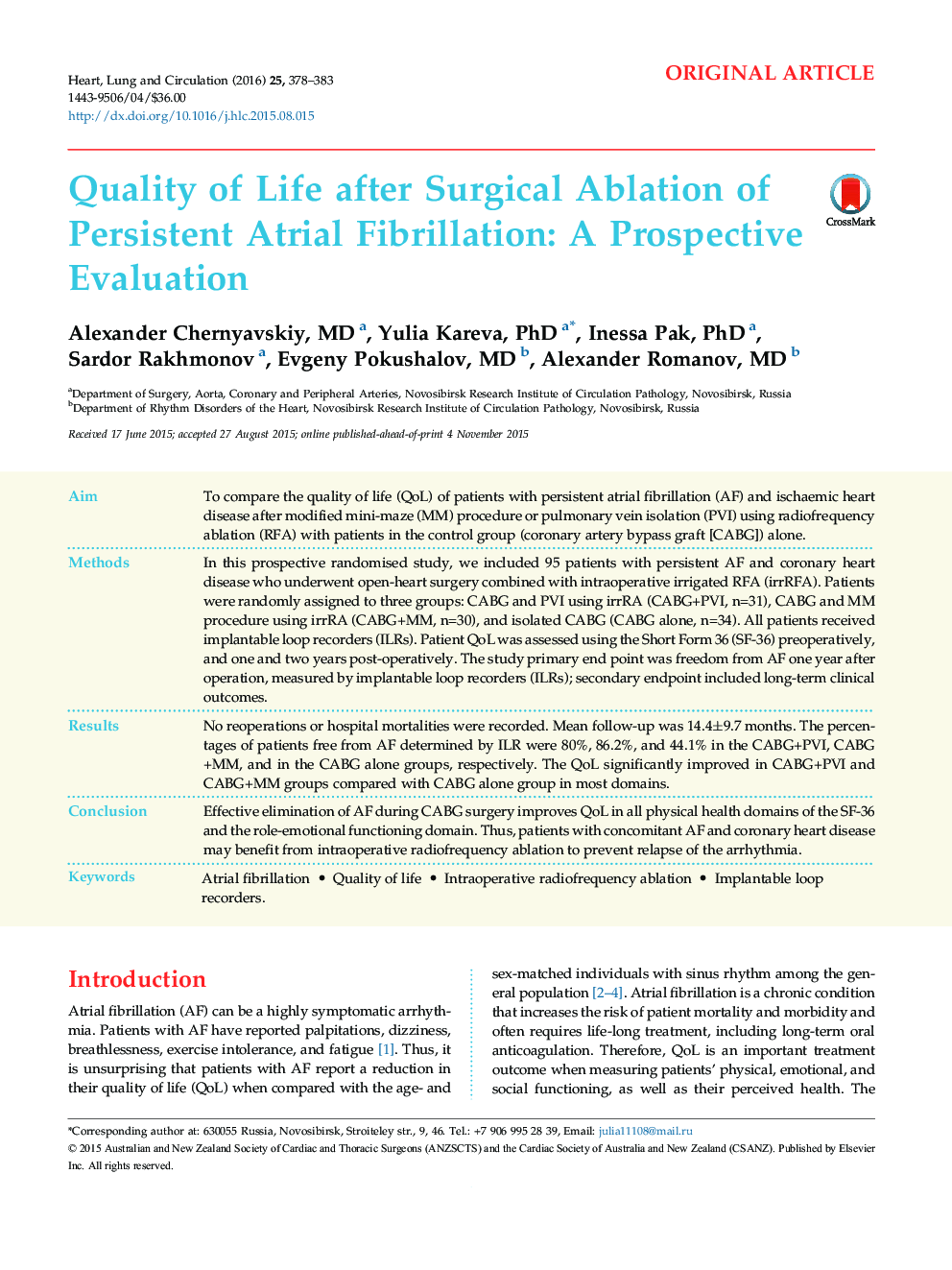| Article ID | Journal | Published Year | Pages | File Type |
|---|---|---|---|---|
| 2916817 | Heart, Lung and Circulation | 2016 | 6 Pages |
AimTo compare the quality of life (QoL) of patients with persistent atrial fibrillation (AF) and ischaemic heart disease after modified mini-maze (MM) procedure or pulmonary vein isolation (PVI) using radiofrequency ablation (RFA) with patients in the control group (coronary artery bypass graft [CABG]) alone.MethodsIn this prospective randomised study, we included 95 patients with persistent AF and coronary heart disease who underwent open-heart surgery combined with intraoperative irrigated RFA (irrRFA). Patients were randomly assigned to three groups: CABG and PVI using irrRA (CABG+PVI, n=31), CABG and MM procedure using irrRA (CABG+MM, n=30), and isolated CABG (CABG alone, n=34). All patients received implantable loop recorders (ILRs). Patient QoL was assessed using the Short Form 36 (SF-36) preoperatively, and one and two years post-operatively. The study primary end point was freedom from AF one year after operation, measured by implantable loop recorders (ILRs); secondary endpoint included long-term clinical outcomes.ResultsNo reoperations or hospital mortalities were recorded. Mean follow-up was 14.4±9.7 months. The percentages of patients free from AF determined by ILR were 80%, 86.2%, and 44.1% in the CABG+PVI, CABG+MM, and in the CABG alone groups, respectively. The QoL significantly improved in CABG+PVI and CABG+MM groups compared with CABG alone group in most domains.ConclusionEffective elimination of AF during CABG surgery improves QoL in all physical health domains of the SF-36 and the role-emotional functioning domain. Thus, patients with concomitant AF and coronary heart disease may benefit from intraoperative radiofrequency ablation to prevent relapse of the arrhythmia.
